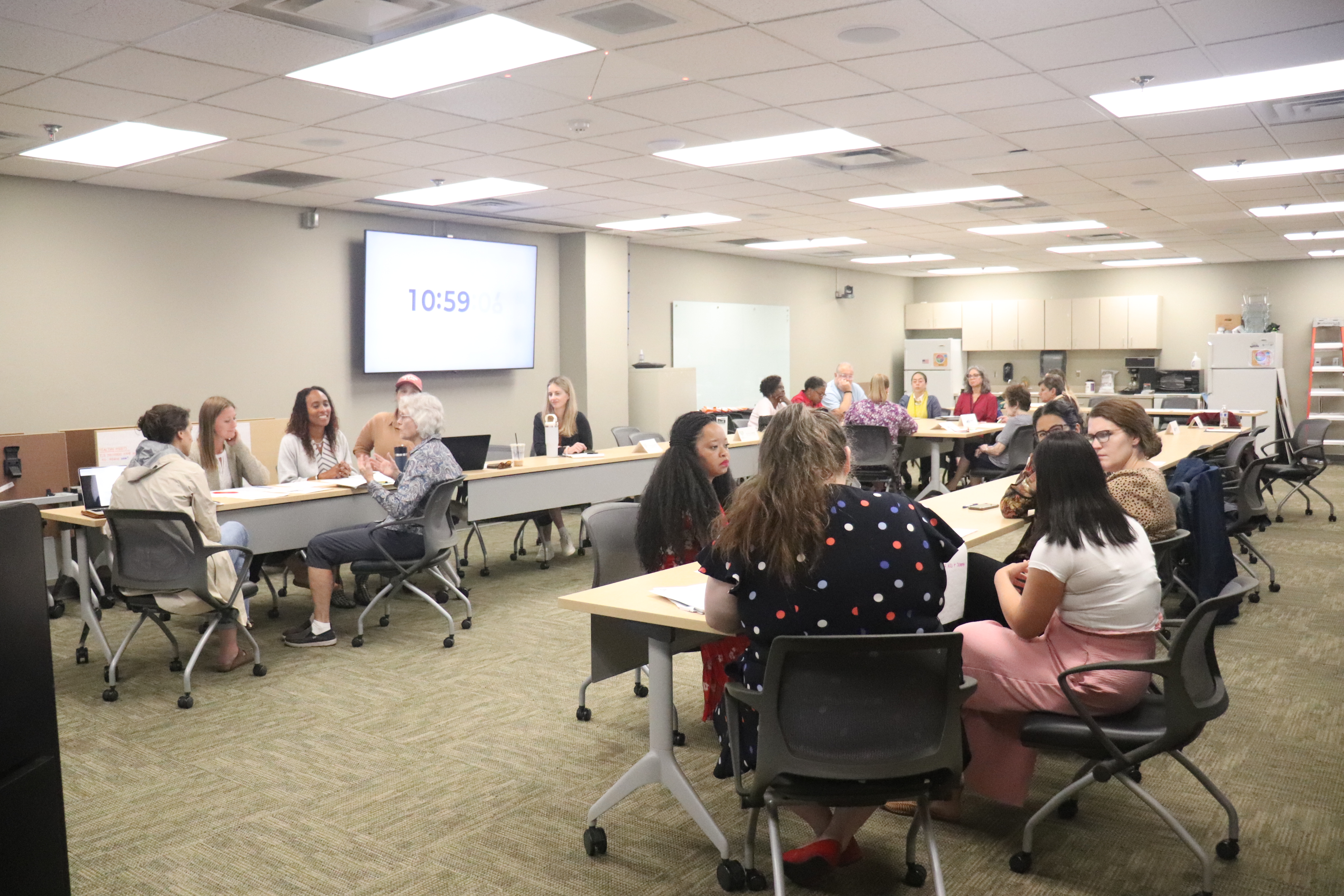About the Community Health Council:

The Together! Healthy Knox (THK) initiative started in May 2010 with a public meeting where the Knox County Health Department shared key findings from two major assessments: Community Status Assessment and Community Theme and Strengths Assessments. Volunteers were then recruited to form a Leadership Team to guide the MAPP (Mobilizing for Action through Planning and Partnership) process.
By July 2010, the Leadership Team was established, bringing together representatives from various sectors of the local public health system. In August 2010, the team worked collaboratively to create a shared vision for the initiative. Over the next few months, the team conducted the Local Public Health System Assessment and Forces of Change Assessment, completing both by February 2011.
In May 2011, the Leadership Team presented the Community Health Assessment (CHA) data to the public and identified strategic health priorities. Additional volunteers were invited to form three Action Teams to tackle these health priorities. Between June 2011 and August 2012, these Action Teams developed the Community Health Improvement Plan (CHIP).
In January 2013, the THK Leadership officially became the Community Health Council, established by ordinance of the Knox County Commission, with supporting ordinances and resolutions from the Knoxville City Council and the Farragut Board of Aldermen.
The Council serves the City of Knoxville, Knox County, and the Town of Farragut. It is supported and facilitated by the Knox County Health Department.
Council members serve staggered three-year terms. The Council comprises dedicated volunteers from the community, along with individuals appointed by elected officials including the Knox County Commission, Knoxville City Council, Farragut Board of Alderman, Knox County Mayor, City of Knoxville Mayor, and Town of Farragut Mayor. This diverse membership brings a range of expertise and viewpoints, fostering collaboration and inclusive decision-making.
CHC uses a national model to engage stakeholders around priority health topics, identified through the Knox County Health Department's Community Health Assessment (CHA) which is conducted every five years. The Council uses data from the CHA to select priority health issues and create a Community Health Improvement Plan (CHIP). This plan serves as a roadmap to improve the overall health of Knox County residents.
The Health Council is comprised of community partners and organizations in Knox County.
Here are the partners that are serving on the Council:
- Katherine Bike (Chair)Knox County Board of Education
- Lindsey McCreary (Past-Chair)Vatica Health
- Jeanne Brykalski (appointed)Town of Farragut
- Liliana BurbanoUniversity of Tennessee Medical Center
- Dr. Caroline CooleyBike Walk Knoxville
- Jenni Craddick (appointed)Town of Farragut
- Kelly Drummond (appointed)City of Knoxville
- Nicole GrossAmerican Heart Association
- Alicia JonesKnox County Schools
- Ellie Kitrell (appointed)United Way of Greater Knoxville
- Gretchen Knode (appointed)Five Stones Farm
- Katya MaciasRiver Valley Health
- Taylor MurmannTennessee Suicide Prevention Network
- Mitch OlszewskiAmerican Association of Retired Person
- Rob PatrickKAPA Foundation
- Dr. Jada RussellUniversity of Tennessee, Knoxville
- Dr. Javiette Samuel (appointed)University of Tennessee, Knoxville
- Kelsey WilsonKnox County Health Department
The Health Council has established subcommittees, also referred to as working groups, composed of community partners and organizations. These subcommittees are organized around the health topics addressed in the CHIP.
Presently, there are three subcommittees dedicated to implementing the CHIP. Each subcommittee is focused on one of the health priorities: Adverse Childhood Experiences, Cancer and Diabetes.
If you would like to join a subcommittee, please contact us by email.
Goal: To create a culture of health in Knox County around ACEs and trauma-informed practices and interventions.
Adverse Childhood Experiences (ACEs) are traumatic events in childhood that can negatively impact mental health and lead to tobacco, alcohol, and drug use. The Council worked closely with community partners who use trauma-informed care practices to identify the gaps in addressing ACEs.
As there is limited local data on ACEs among Knox County youth, the Council plans to help create a community that understands how to address trauma. Rather than incorporating trauma-informed practices after an ACE has occurred, the Council aims to focus on upstream solutions to childhood trauma in targeted sectors.
By providing training to parents, caregivers, after-school programs, justice systems, and healthcare providers, the approach seeks to empower these groups to make decisions with a trauma-informed lens, as they interact with children across various levels.
Goal: Increase access to health care, particularly for underserved, low-income, and minority populations.
Many types of cancer have different risk factors. The Council considers cancer a top priority, focusing on education and screening in underserved, low-income and minority populations.
While many Knox County residents seek preventive care such as mammograms or colonoscopies, they do not do so regularly.
The Council has identified a need for more education about the benefits of regular screening and increased efforts to promote screening for various cancers. Breast, lung and colon cancer are among the top cancers with the highest mortality rate in Knox County.
Goal: Increase access and opportunities for active living, healthy eating, and diabetes prevention and management educational resources.
Diabetes has been found to be a major health issue in Knox County. It is known that healthy eating habits and increased physical health are important for preventing diabetes, especially type 2 diabetes.
With data gathered from the Community Health Assessment, the Council decided to focus not only on diabetes management but also on equity-focused, upstream intervention and prevention. This proactive approach aims to address the root causes of diabetes and promote overall community wellness.
Using data-driven strategies and collaborative efforts, the Council is poised to create sustainable, long-term solutions that benefit the well-being of the community.